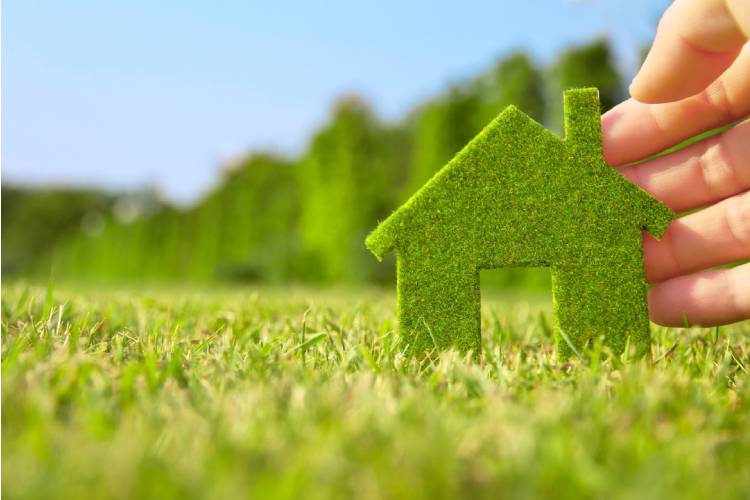

The much-anticipated COP 28 offered a crucial platform to policymakers to discuss the importance of sustainability in built environment
December 27, 2023 | Deepa Natarajan Lobo | UAE | Facilities Management

As per reports, the built environment is responsible for approximately 42% of all the greenhouse emissions across the globe. Of these, building operations are responsible for around 27% per year, while the embodied carbon from merely four materials – cement, iron, steel, and aluminium itself – amounts to an additional 15% annually. With global building floor area expected to double by 2060, the planet is experiencing a climate crisis like never before.
The 2023 United Nations Conference of the Parties (COP 28), which took place in Dubai between November 30 and December 12 to devise strategies for climate change, offered a crucial platform to policymakers to discuss the importance of sustainability in built environment. Said Fahad Mohamed, Director – Operations, ADEEB Group Services, a prominent facilities management firm, “The built environment stands out as a major contributor to global emissions, encompassing construction, energy consumption, and logistical operations. Every stage, from raw material extraction to construction practices, waste management, and energy use, demands careful consideration for more sustainable practices. This underscores the necessity for regulatory intervention led by policymakers in nations significantly contributing to emissions.”
Stressing on the need for a well-crafted framework that can guide the built environment industry, ensuring success across environmental, economic, and social dimensions, he added, “Shared goals among countries can fast-track innovation, influencing changes from manufacturing to construction and maintenance in the built environment.”
According to Muna Al Nahdi, Head of Sustainability & Consultancy at Farnek, the UAE-based facilities management company, COP28 took place at a crucial moment in the global effort to combat climate change as it marked the conclusion of the first global stocktake (GST), the main mechanism through which progress under the Paris Agreement is assessed. “The 2022 Global Status Report for Buildings and Construction said that the emissions from building operations have experienced a significant increase, reaching a record high of approximately 10 GtCO2. A critical takeaway from the report is that the buildings and construction sector is not making sufficient progress toward achieving decarbonisation by 2050. Existing buildings constitute a significant portion of the built environment and decarbonising them is notably more challenging due to many limitations such as legacy systems and appropriate financing for retrofits,” she said.
Limiting the Rising Temperatures
There are various facts and figures to prove that the world is literally facing the heat of its own actions. Over the last several decades, with overuse of fossil fuels and rampant deforestation amidst rapid development and urbanisation, the earth has become a much warmer place to live in. As per researches and studies, the world is losing 1.2 trillion tons of ice each year and the greenhouse gas (GHG) emissions are at their highest in the last two million years.
Creating effective strategies to keep global warming within the critical limit of 1.5 degrees Celsius was a crucial part of the summit, pointed out Fahad. “Exceeding the limit could result in severe consequences such as rising sea levels, biodiversity loss, agricultural disruptions, ocean acidification, health risks, resource scarcity, and feedback loops that worsen climate change. In order to prevent these outcomes, summits like COP28 are imperative,” he stated. To guide COP28 efforts, a comprehensive framework with four core pillars was outlined: accelerating a fair transition to sustainable energy, addressing climate finance issues, prioritizing the well-being of individuals, nature, lives, and livelihoods, and promoting inclusivity. “These pillars provide a roadmap for collective action to achieve the ambitious goals set for COP28,” he added.
28 Years and Counting
An event that has been taking place every year since 1995 (with the first one being held in Berlin, Germany), this was the 28th year of the conference and had nearly 200 nations taking part. With the themes being ‘Technology & Innovation, Inclusion, Frontline Communities, and Finance’, the conference consisted of –
The venue for the conference, Expo City, was divided into two zones: blue and green. While the blue zone was for industry leaders and experts who discussed and debated on various policies, the green was open to the public and held a host of events on issues related to net zero and environment.
The Paris Agreement, which was set in 2016 post COP 21 in the French capital, had stated that in order to limit the global warming to 1.5°C, greenhouse gas (GHG) emissions must peak before 2025 at the latest and decline 43% by 2030. With each nation including the ones in the Gulf Cooperation Council (GCC) meeting this agenda in its own way, COP28 was the model platform for nations to put their heads together and discuss their initiatives, actions and future plans to tackle climate change.
Dubai – The Common Platform
For the host nation UAE, especially the bustling emirate of Dubai, the event was all the more significant as with skyrocketing developments, potential impacts of climate change have been resonating throughout the region. “We are already feeling the impact and COP28 was definitely instrumental in shaping the region’s sustainable future,” said Muna. “The summit brought together global stakeholders for discussions and solutions, which are crucial for accelerating decarbonisation and serve as an enabler for the entire sector. Hopes are high for new initiatives that tackle regulatory progress, technology and innovation, financing schemes and the key partnerships,” she added.
With the pace of climate change exceeding the time required for reforms, it's vital to rethink communities, making them not just sustainable but also smarter—a crucial aspect of safeguarding future generations, observed Fahad. “This shift is no longer a choice but a vital part of our collective responsibility. Events like COP28 are anticipated to establish common platforms on an international scale, striving to achieve the aforementioned goals. They act as catalysts for creating awareness and garnering acceptance among stakeholders in the built environment, fostering a collaborative approach toward a sustainable and resilient future,” he concluded.